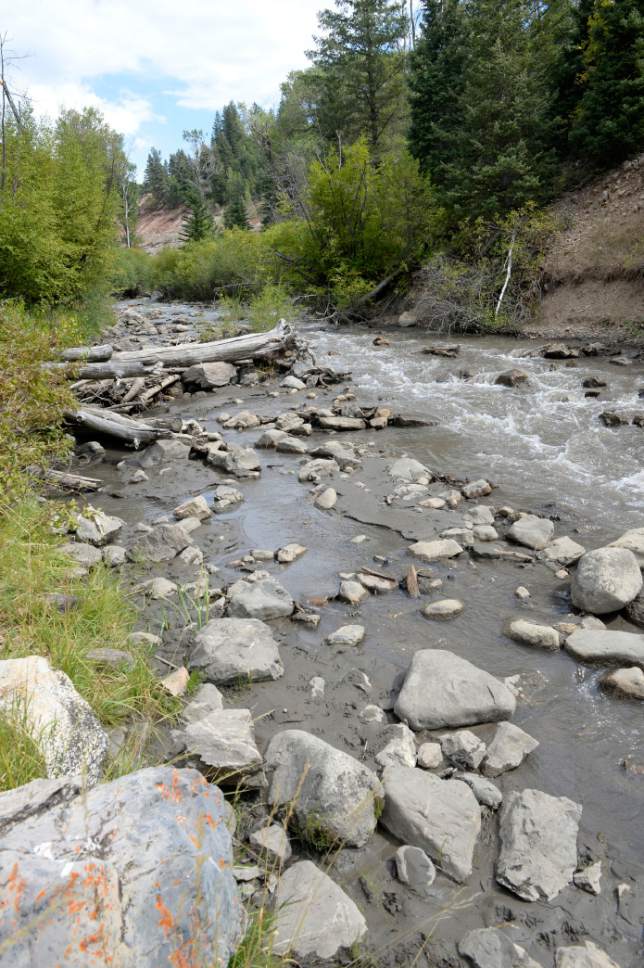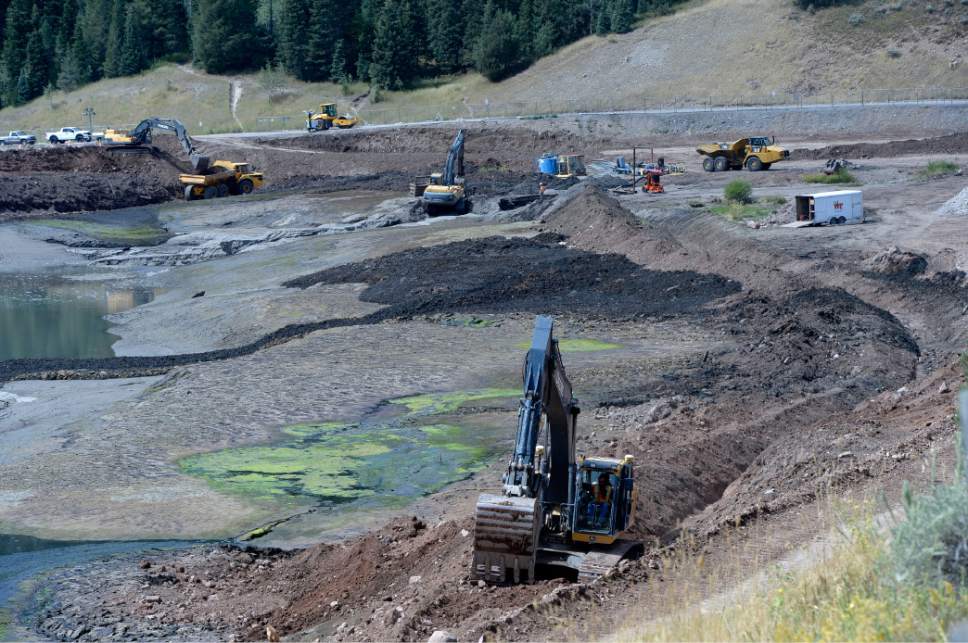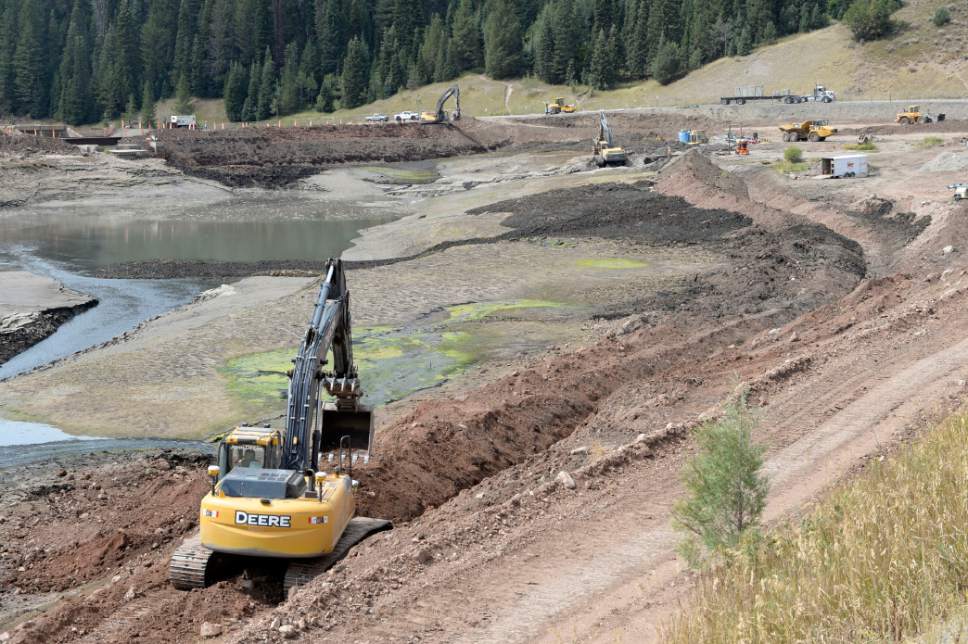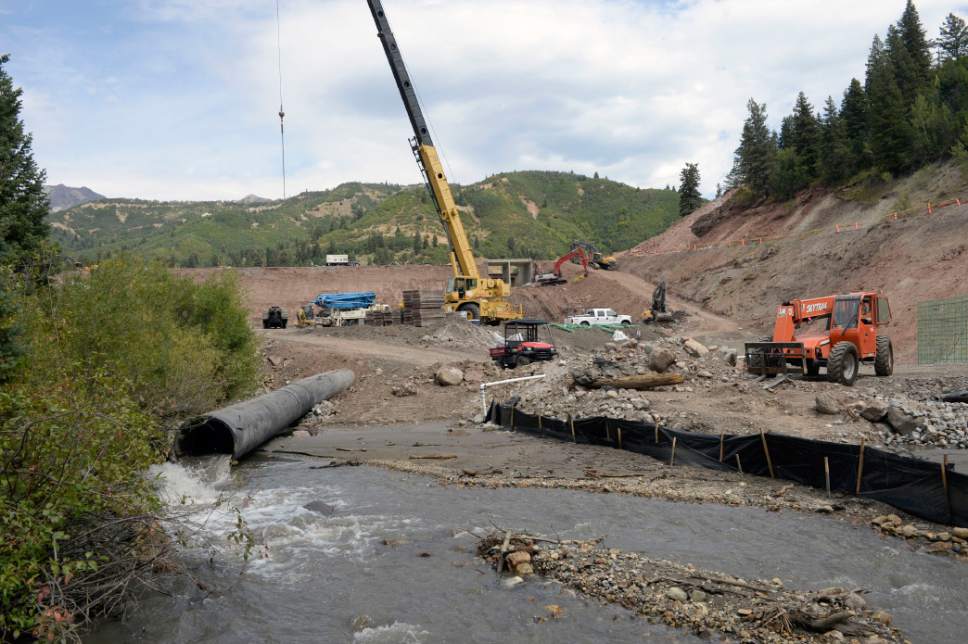This is an archived article that was published on sltrib.com in 2017, and information in the article may be outdated. It is provided only for personal research purposes and may not be reprinted.
The Utah County Health Department has lifted an advisory warning residents away from recreating in the American Fork River, which was polluted by lead-laden sediment from an incident last summer on Tibble Fork.
Aislynn Tolman-Hill, a spokeswoman for the Health Department, said Wednesday that the advisory was put in place in August after the spill, out of concern that elevated levels of lead could be present in the river's sediment, posing a potential threat to residents — especially children — who might play in or near the river.
An estimated 5,000 cubic yards of sediment laced with heavy metals — from historic mines upstream — eroded out of Tibble Fork Reservoir and flowed downstream last summer during construction work.
Samples collected from the river immediately after the Aug. 19 release exceeded the state's standards for recreational exposure to lead, said Kevin Okleberry, spills coordinator for the Utah Division of Water Quality. Lead causes developmental delays in children.
Contaminated sediment beneath the reservoir near the mouth of the canyon was removed in March, Okleberry said, but monitoring of the river will continue until the tests indicate that the sediment contains only naturally occurring concentrations of lead.
Per a settlement with state regulators that involved $145,000 in fines, the North Utah County Water Conservancy District must collect sediment samples annually until the river returns to "background," or low, lead levels. The water district also agreed to remove any additional contaminated sediment that may be discovered.
The cleanup "could take one year, or it could take 10 years," Okleberry said.
The water district has collected its first round of sediment samples, but state water-quality officials are waiting for test results, he said.
The state also collected samples of soil in American Fork, Highland and Cedar Hills from parks that had been irrigated by American Fork River water. There was some concern that the lead contamination could spread to these soils via the river water, Okleberry said.
But those samples were found to contain low levels of lead, which prompted the Utah County Health Department to lift the advisories for the river.
Twitter: @EmaPen









